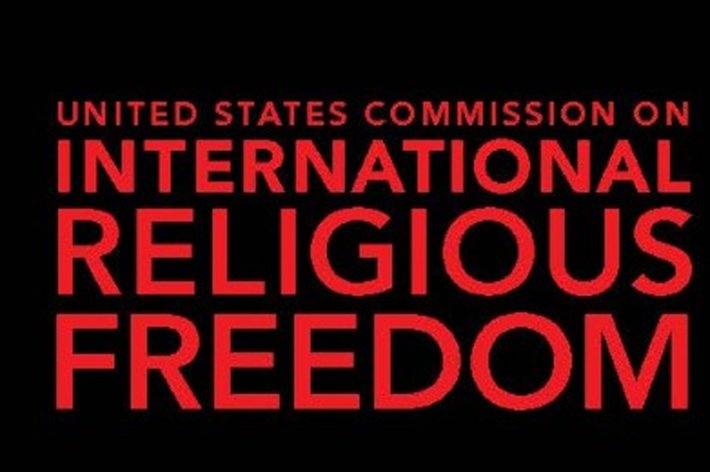Pakistan’s blasphemy law and its systematic persecution of the minority Ahmadiyya Muslim sect in an atmosphere of oppressive violence against religious minorities are key reasons why the United States should create a binding agreement aimed at addressing religious freedom violations in the South Asian country, according to the U.S. Commission on International Religious Freedom (USCIRF), a bipartisan federal government body within the State Department.

In its 2020 annual report, released April 28, the USCIRF listed Pakistan among 14 “Countries of Particular Concern” (CPCs) for “engaging in systematic, ongoing, and egregious religious freedom violations,” including blasphemy laws interpreted by the criminal code as insulting to Islam and punishable by death.
This is the third straight year that the USCIRF has designated Pakistan on the CPC list, along with China, Burma (Myanmar), North Korea, Saudi Arabia, and others.
A CPC designation can result in sanctions under U.S. law, but in light of U.S. security interests in the potentially volatile geopolitical region occupied by Pakistan, the State Department granted waivers to the country in 2018 and 2019, effectively exempting it from any retaliatory actions, the USCIRF noted in a policy update. The commission warned the Pakistani government may be unwilling to enter into a binding agreement as long as the State Department continues to waive any meaningful actions related to its CPC designation.
Under the 1998 International Religious Freedom Act, a binding agreement between Washington and Islamabad would encourage the Pakistani government “to take meaningful steps to address religious freedom violations with defined benchmarks.”
Such an agreement, the watchdog said, “could be a constructive tool to engage with Pakistan by providing greater clarity to a path off the CPC list and help improve religious freedom conditions, especially for the country’s religious minorities.”
Over the past two years, Pakistan has taken a number of positive steps regarding religious issues, the USCIRF noted. These included the 2018 overturning by the Pakistan Supreme Court of a death sentence in a prominent blasphemy case against a Pakistani Christian woman, Asia Bibi. After initially preventing Bibi from leaving Pakistan, the government allowed her to seek asylum in Canada in May 2019.
In September 2019, Pakistan’s Supreme Court acquitted another citizen, Wajih-ul-Hassan. He had been on death row for 18 years following a conviction on blasphemy charges that the court found was based on unreliable evidence.
In the short term, to demonstrate its willingness to address religious freedom violations, Pakistan should immediately take the following steps, the USCIRF wrote: get rid of current requirements whereby the religion of citizens is mentioned on identity documents; eliminate the 2015 ban on religious texts and publications by the minority Ahmadiyya sect, which has long suffered persecution; and initiate an expedited review of all blasphemy cases.
In the mid-term, the USCIRF recommends that the Pakistani government enforce “proper handling of blasphemy cases” in keeping with due process rights, establish and train a special police task force to protect minorities and their houses of worship, remove from educational curricula material that denigrates religious minorities, and train teachers about the importance of religious tolerance.
In the long-term, the USCIRF recommends that Pakistan repeal laws criminalizing blasphemy as well as the Ahmadiyya faith, and release all individuals imprisoned for their religion or belief.
Broadly, in the long-term, “the Pakistani government should dismantle the existing legal framework that systematically and institutionally restricts the freedom of religion or belief in Pakistan,” the USCIRF policy update recommended. “Considerable domestic political outreach and groundwork will be necessary, given that such legal changes implicate sensitive issues and reformers have faced political pressure as well as threatened or actual violence in the past.”
_____________________
From its beginnings, the Church of Scientology has recognized that freedom of religion is a fundamental human right. In a world where conflicts are often traceable to intolerance of others’ religious beliefs and practices, the Church has, for more than 50 years, made the preservation of religious liberty an overriding concern.
The Church publishes this blog to help create a better understanding of the freedom of religion and belief and provide news on religious freedom and issues affecting this freedom around the world.
For more information, visit the Scientology website or Scientology Network.


